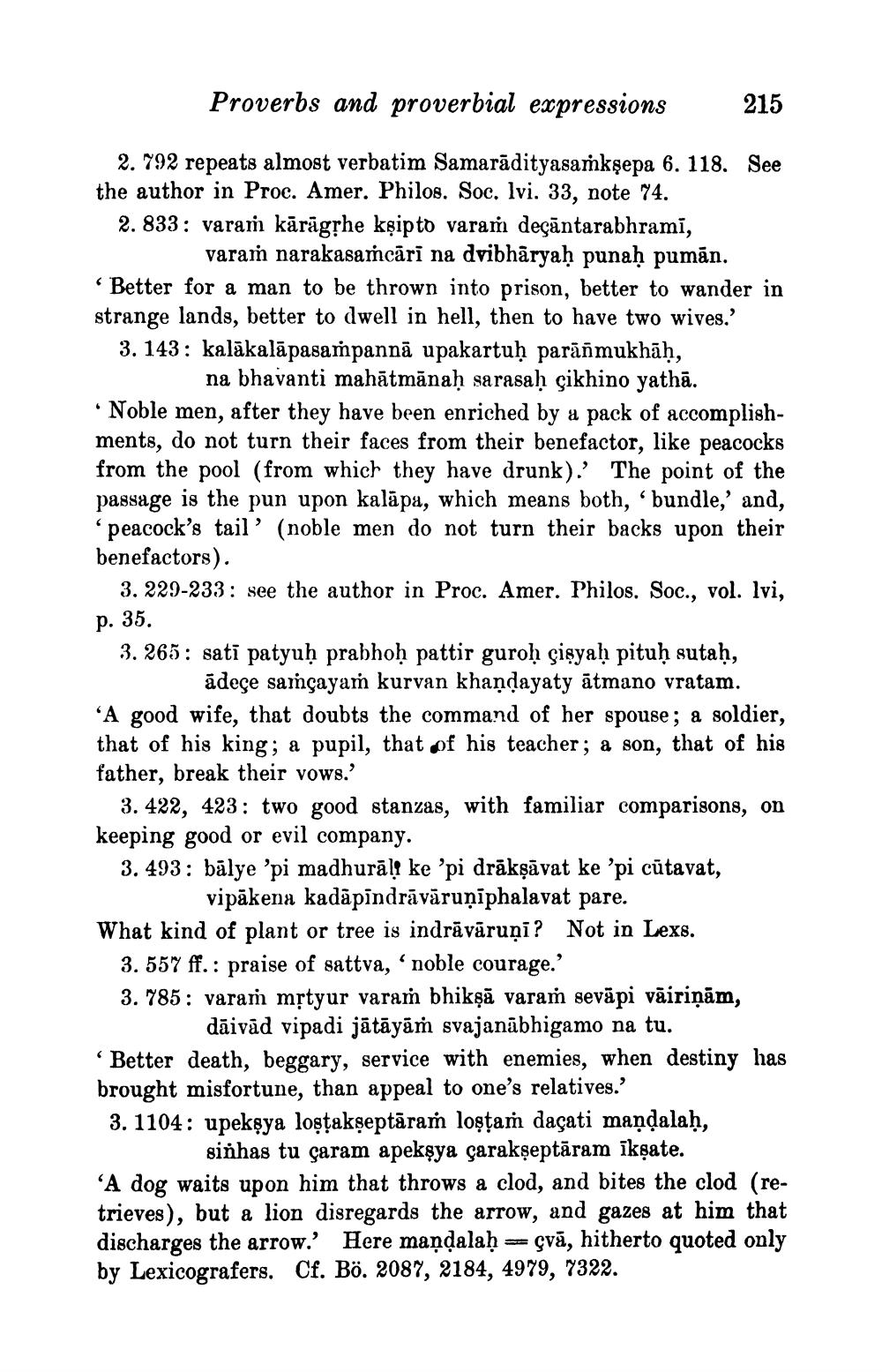________________
Proverbs and proverbial expressions
215
2. 792 repeats almost verbatim Samarādityasaṁkşepa 6. 118. See the author in Proc. Amer. Philos. Soc. lvi. 33, note 74. 2. 833: varam kārāgshe kşipto varam decāntarabhrami,
varam narakasamcāri na dvibhāryaḥ punaḥ pumān. “Better for a man to be thrown into prison, better to wander in strange lands, better to dwell in hell, then to have two wives.' 3. 143: kalākalā pasampannā upakartuḥ parāñmukhāḥ,
na bhavanti mahātmānaḥ sarasaḥ çikhino yathā. • Noble men, after they have been enriched by a pack of accomplishments, do not turn their faces from their benefactor, like peacocks from the pool (from which they have drunk).' The point of the passage is the pun upon kalāpa, which means both, bundle,' and,
peacock's tail’ (noble men do not turn their backs upon their benefactors).
3. 229-233: see the author in Proc. Amer. Philos. Soc., vol. lvi,
p. 35.
3. 265: sati patyuḥ prabhoh pattir guroh çisyaḥ pituḥ sutaḥ,
ādeçe samçayam kurvan khandayaty ātmano vratam. 'A good wife, that doubts the command of her spouse; a soldier, that of his king; a pupil, that of his teacher; a son, that of his father, break their vows.'
3. 422, 423: two good stanzas, with familiar comparisons, on keeping good or evil company. 3.493: bālye 'pi madhurālı ke 'pi drākşāvat ke 'pi cūtavat,
vipākena kadāpīndrāvāruņīphalavat pare. What kind of plant or tree is indrāvāruņi? Not in Lexs.
3. 557 ff.: praise of sattva, 'noble courage.' 3.785: varam mộtyur varam bhikṣā varam sevāpi väiriņām,
dāivād vipadi jātāyām svajanābhigamo na tu. ' Better death, beggary, service with enemies, when destiny has brought misfortune, than appeal to one's relatives.' 3.1104: upekşya losţakşeptāram loştaṁ daçati maņdalah,
sinhas tu çaram apekşya çarakṣeptāram īkşate. 'A dog waits upon him that throws a clod, and bites the clod (retrieves), but a lion disregards the arrow, and gazes at him that discharges the arrow.' Here mandalaḥ-çvā, hitherto quoted only by Lexicografers. Cf. Bö. 2087, 2184, 4979, 7322.




